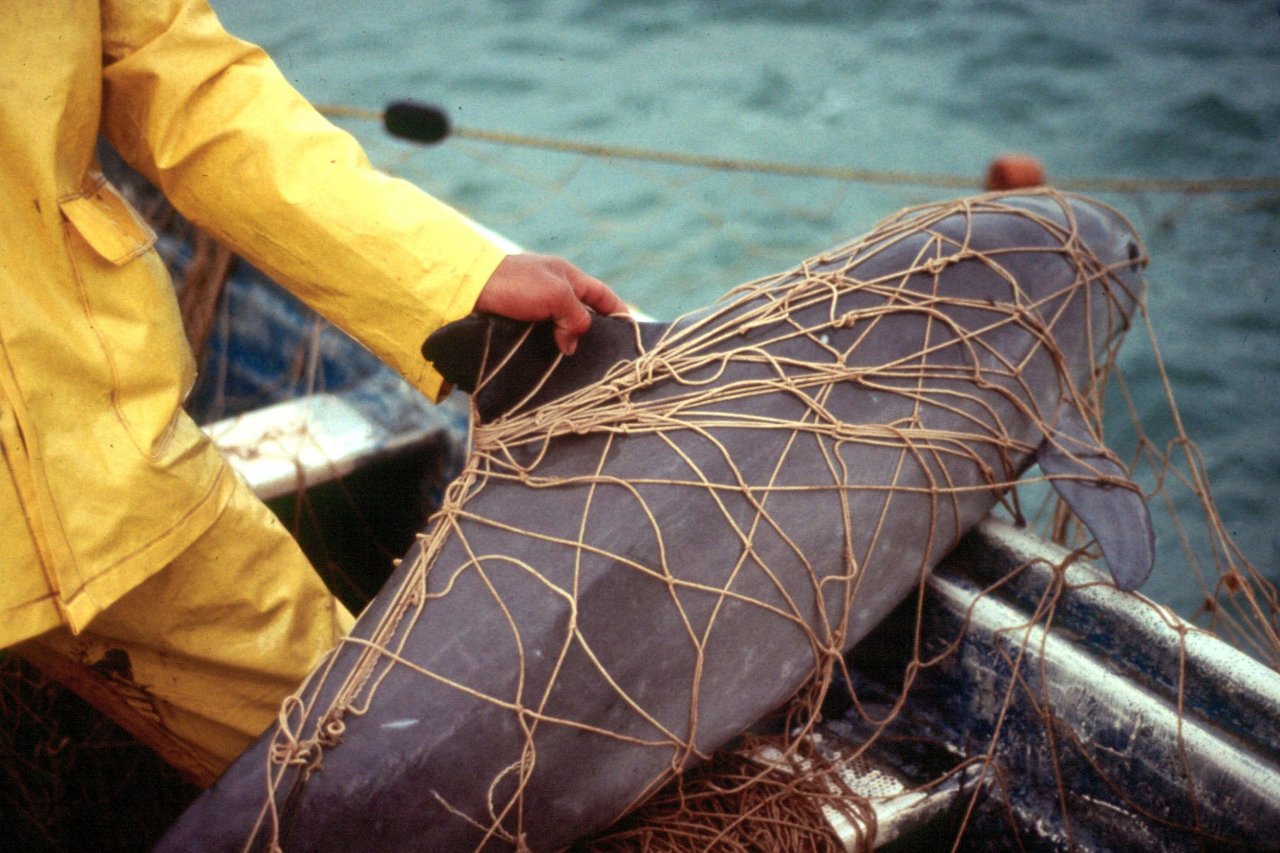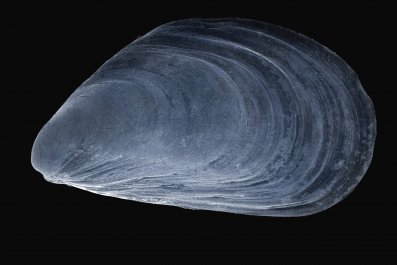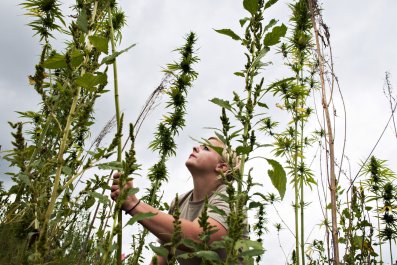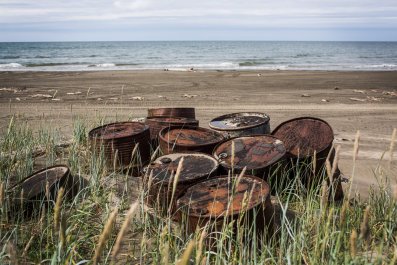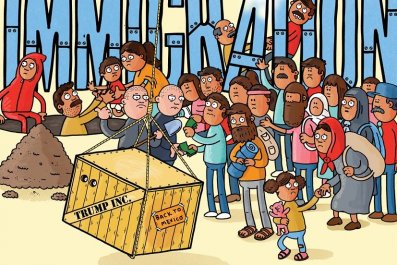A small fiberglass boat rocks on the surface of the water a few hundred yards from shore about 100 miles down Baja California from the U.S.-Mexico border. Two men in yellow slickers and rubber boots stand in the boat, pulling a loosely woven net from the water with their hands. Tangled in the gillnet are four dull silver fish about 5 feet long, each weighing more than 100 pounds. Known as totoaba, these fish live only in the upper Gulf of California and are considered endangered by the International Union for Conservation of Nature (IUCN), Mexico and the U.S. Since 1976, their trade has been prohibited under the Convention on International Trade in Endangered Species of Wild Fauna and Flora since 1976.
And yet the fishermen cut open each fish, remove the swim bladder—a gas-filled organ that helps the fish control its depth—and toss the rest overboard. They may harvest 100 totoaba bladders tonight and earn anywhere from $3,000 to $10,000, depending on current market prices.
Buyers dry these bladders and ship them to markets in Hong Kong, where the price for the flat, yellowish, dinner-plate-sized organs sometimes goes as high as six figures. The Chinese buy them as gifts to cement business relationships, for use in traditional banquet dishes or to eat for their supposed medicinal and nutritional benefits. Totoaba bladders are a substitute for those of the giant yellow croaker (aka Chinese bahaba), which was fished nearly to extinction decades ago.
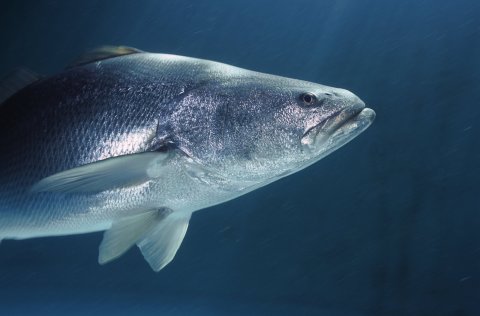
The fishing net in Baja this night also contains a short, smooth mammal with a dark mouth and dark eyes—a Gulf of California harbor porpoise, better known as the vaquita. This species lives only in these waters, and its population was likely never large; the first official survey in 1997 estimated it at 567, a number scientists suspect already reflected a significant decline due to changes in Colorado River inflows and fishing activity. The IUCN considers it critically endangered, and the U.S. has listed it as federally endangered since 1985. The biggest threat is totoaba fishing: Vaquita become snared in gillnets set for totoaba and drown. In the past three years, as illegal fishing activity has increased, so has the rate of decline of their population—30 to 85 individuals are killed in nets each year.
In 2008, a survey conducted by the International Committee for the Recovery of the Vaquita (CIRVA in Spanish) estimated the vaquita population at 245. Contemporary analysis of acoustic monitoring and long-term trends officially put today's number at fewer than 100, although many scientists believe it could actually be below 50. Throughout October and November, scientists from the U.S. National Oceanic and Atmospheric Administration's Southwest Fisheries Science Center and Mexico's National Institute of Ecology and Climate Change are conducting another population survey to try to figure out the actual number.
On this night, that number drops by one. While the Baja fishermen didn't intend to catch the vaquita, it drowned in their net. They toss the carcass back into the sea.
Efforts to save the totoaba and vaquita stretch from Mexican fishing villages through border crossings and U.S. ports, to airports, docks and markets in Hong Kong. It's a daunting task, pursued by conservation organizations such as Greenpeace, CIRVA scientists and both the U.S. and Mexican governments. In 2005, Mexico established a vaquita refuge—an area of the Gulf where fishing with gillnets was prohibited. This past April, Mexican President Enrique Peña Nieto expanded the gillnet exclusion to a 5,000-square-mile area for two years. During that time, scientists and fishermen hope to develop vaquita-safe fishing gear such as small trawl nets, and government agencies will work on alternative ways for locals to earn income.
But stopping the illegal and lucrative totoaba trade is widely recognized as the critical move required to save the vaquita. In February and April, Greenpeace undercover operations of some 70 dried seafood shops in Hong Kong confirmed at least 13 sold totoaba bladders from Mexico. Investigators spent time establishing relationships with shopkeepers, says Gloria Chang, a Greenpeace project leader in Hong Kong and coordinator of the effort. "They showed us the product right away. When we asked if they could help us take it to mainland China, which would be another act of smuggling, they said there were ways to do that. It was quite obvious that the traders were not worried about regulations," she says. "They did know it is illegal and from an endangered species and said that is one reason for its high price. But they also know that the government is loose in regulating, that it is rare for the government to investigate."
In 2013, U.S. customs intercepted about 700 pounds of dried bladders crossing into the country from Mexico at the Calexico border in California. But Andy Read, a marine biologist at Duke University, says eliminating such a lucrative trade will be very difficult. There are species that Mexican fishermen can legally target with methods other than gillnets, he explains, "but from the perspective of a Mexican fisherman, there is enormous incentive to set nets illegally."
So it is no surprise that during a 10-day patrol in July, the Greenpeace vessel Esperanza located 10 illegal gillnets along 50 miles of coastline in the northern Gulf of California. The nets, easily spotted by observers on the vessel, were removed by the Procuraduria Federal de Proteccion al Ambiente, Mexico's environmental police force.
Environmental activists say this independent patrol shows that the Mexican government's enforcement efforts are not enough. Silvia Diaz, campaign manager for Greenpeace Mexico, says that while those efforts look good on paper, little has changed on the ground or in the water. "The Mexican government announced all these measures, using the Navy fast boats and drones, to tell the world and the media that protecting the vaquita is important," she says. "But there are only two people to patrol 5,000 square miles. Two people can't do the job." The Esperanza found nets left out in the open during the day, which shows that lawbreaking fisherman aren't taking the government seriously, Diaz points out.
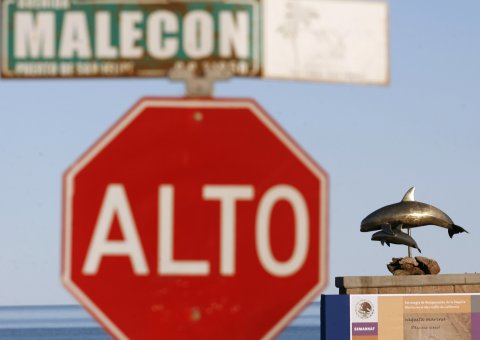
Because gillnets were previously used to legally harvest shrimp and other fish, the Mexican government pledged more than $30 million to compensate fishermen affected by the ban. Each receives about $460 per month. Ramón Franco Diaz, president of one of the fishing cooperatives in San Felipe and a fisherman for 40 years, says the government compensation is enough to support his family and he has stopped fishing. Leaders of several other cooperatives also agreed to the ban, he says, but the nets found on the patrol indicate that the illegal totoaba harvest continues.
Cracking down at the other end could prove easier. "We are talking about an illegal business, not something that is in a gray area," says Greenpeace's Chang. She ticks off ways to put an end to the totoaba trade: more inspections at the market level, in dried seafood markets and other likely places, to signal to traders that the government is watching; international cooperation to target smuggling groups; and clamping down on the freewheeling atmosphere in Hong Kong. "It is such a free trading port, it is easy for any product to get in and out," she says. "[Local] government officials don't want the international trading community to think Hong Kong puts too much regulation and customs on trade, but officials need to realize that this atmosphere is being abused by smugglers." Totoaba bladders aren't the only illegal animal products smuggled through Hong Kong; the trade in ivory and rhino horns there is also robust.
Since the Greenpeace investigation results were released, she adds, Hong Kong's Agriculture, Fisheries and Conservation Department has conducted its own inspections and sent evidence to its Department of Justice. She is hopeful that legal prosecution will follow. "Once a trader is prosecuted for smuggling bladders, it will give a strong signal to the rest of the traders.
"Hong Kong authorities have the power to shut this market down," Chang adds. "If they don't, they will be responsible for pushing the vaquita to extinction."
Greenpeace Mexico's Diaz says loss of the species would be a loss to all of Mexico, a country known for its rich biodiversity. "This is the cutest marine mammal in the world, the smallest porpoise and the most endangered. It could be a source of pride for Mexico to protect it and save it, or a source of shame if it goes extinct."
The vaquita population survey cruise ends December 3. CIRVA will then analyze the data and issue a new population estimate by May 1, 2016. Whatever the number, Duke University's Read remains optimistic, in part because populations of other mammals have recovered from very low numbers. "At one point, there may have been as few as 20 elephant seals, and now we are awash in them," he notes. "Thanks to extensive efforts on the part of Mexico and the U.S., they recovered. We hope to pull out the same kind of bottom-of-the-ninth, two outs and two strikes with the vaquita."



